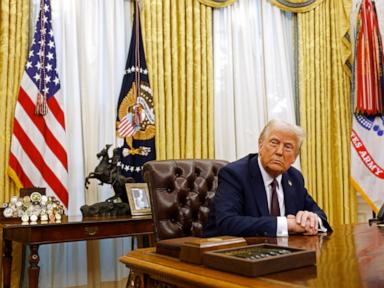
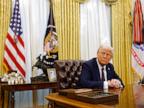

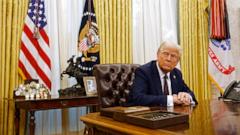
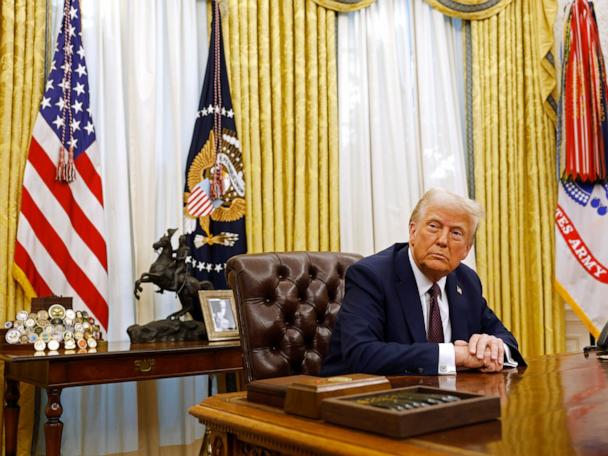
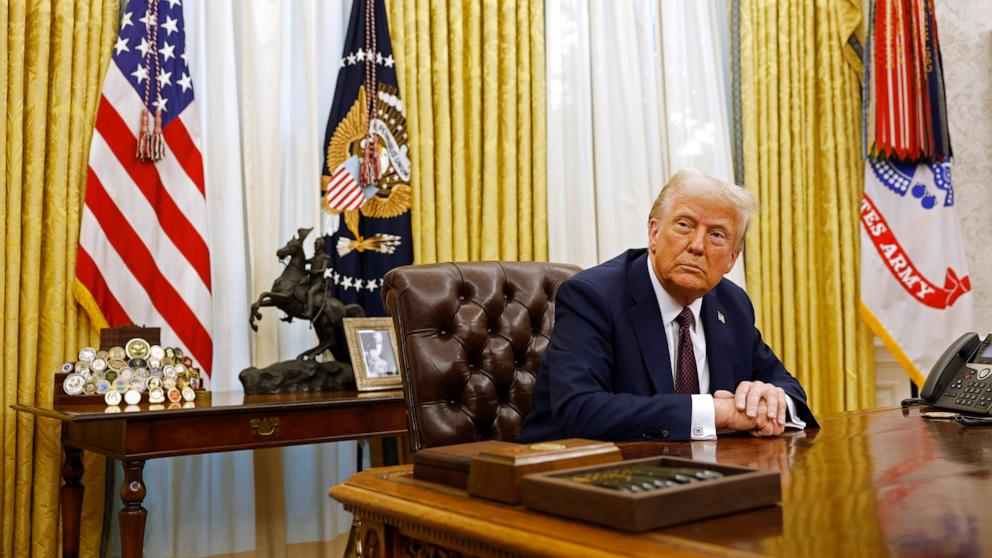
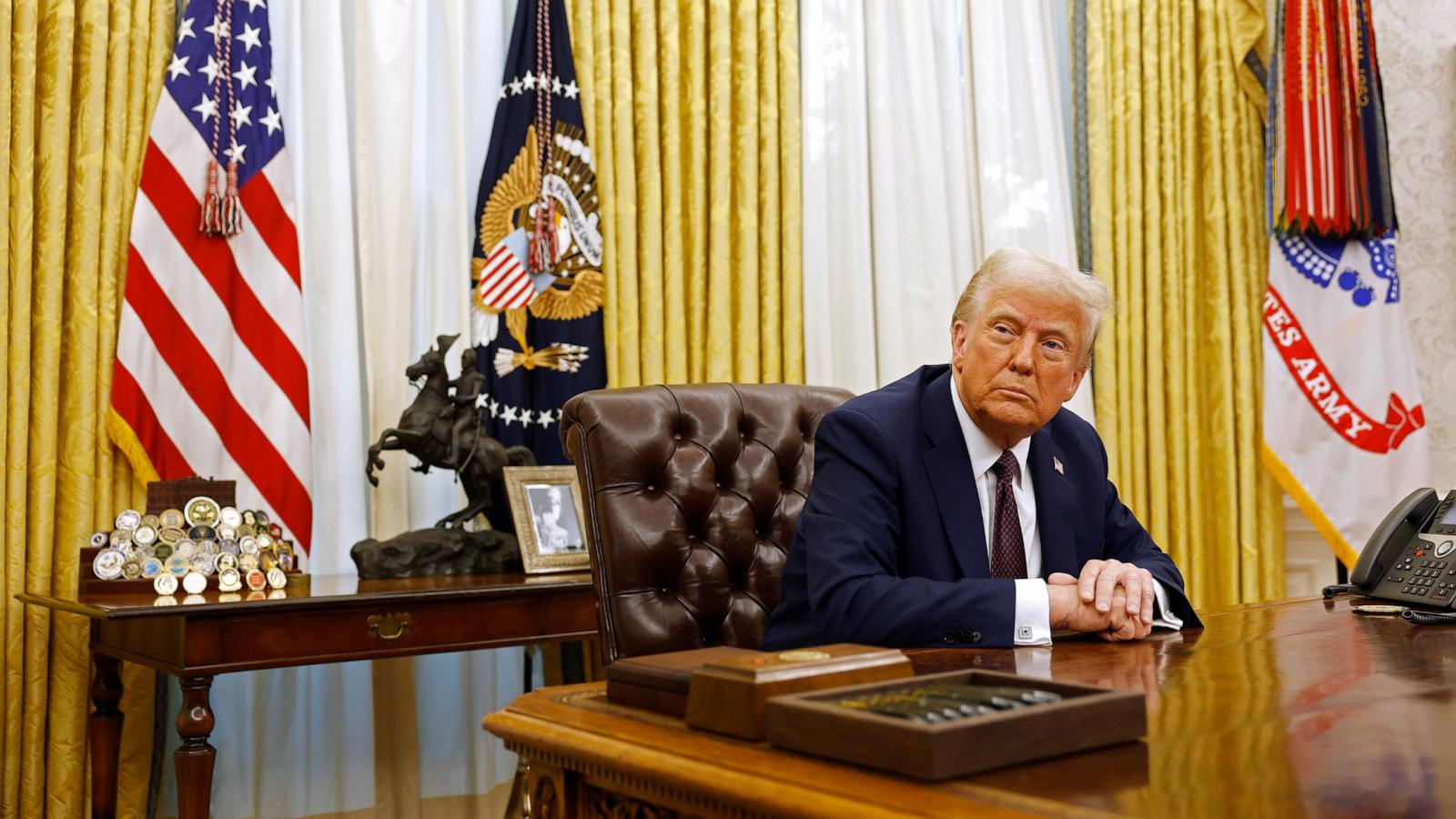
While it appears that all eyes are on the federal government as President Donald Trump’s second term enters its first full month, many of the offices responsible for keeping the country’s national agencies accountable are finding themselves leaderless.
The inspectors general for at least 17 agencies were terminated in late January, with one such official receiving a two-sentence letter citing “changing priorities,” according to a copy of the note obtained by ABC News.
“It’s a very common thing to do,” Trump told reporters about the firings five days after being inaugurated.
In the press gaggle aboard Air Force One on Jan. 25, Trump continued that he was not firing “all of them,” specifically mentioning that Michael Horowitz, the inspector general of the Department of Justice, would be kept.
Concerns have been mounting since from some researchers who wonder what will happen next at internal watchdog offices that have been a staple of Washington accountability for nearly five decades.
“They have saved our agencies and the American people literally millions and millions and millions of dollars,” George Washington University professor Kathryn Newcomer told ABC News about the IGs. “They are saving way more than we are spending on them.”
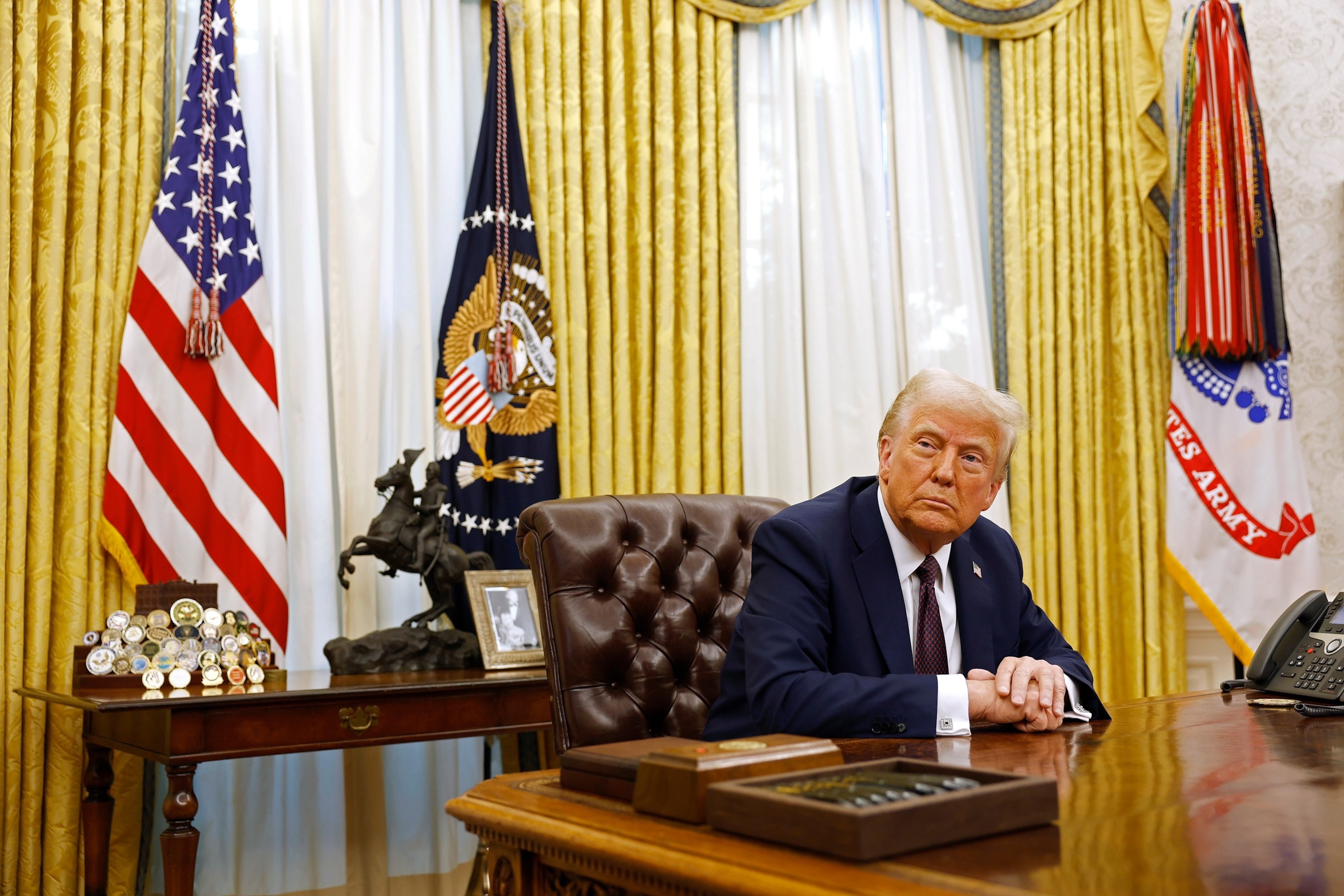
President Donald Trump speaks to reporters after signing a series of executive orders in the Oval Office of the White House, on Jan. 23, 2025, in Washington, D.C.
Anna Moneymaker/Getty Images
What is an inspector general?
Offices of inspector general in their current form date back to 1978, when a federal law allowed for their creation.
“There were some scandals back in the 60s into the early 70s in which there was fraudulent use of government property,” Newcomer said.
Then-President Jimmy Carter, who signed the bill into law, described the role of inspectors general as “perhaps the most important new tools in the fight against fraud,” according to the Council of the Inspectors General on Integrity and Efficiency.
In addition to state and local agencies, there are now more than six dozen federal inspectors general offices at entities of all sizes, from the Department of Defense and the Department of Transportation to the Farm Credit Administration and the National Science Foundation.
“Inspectors general are essentially in two roles,” A. Sprightley Ryan, who served as the inspector general for the Smithsonian Institution more than a decade ago, told ABC News. “They’re sort of like an internal cop and an internal auditor.”
In recent years, investigative reports from inspectors general have explored staffing challenges at air traffic control centers operated by the Federal Aviation Administration, analyzed whether funds being used to support Ukraine were being properly accounted for and looked into allegations involving the architect of the Capitol.
There are two ways in which federal inspectors general are typically appointed, Ryan explained. For some agencies, their inspector general is appointed by the president and confirmed by the Senate, while at other departments, the person is appointed by the individual entity’s leadership.
“The key is that they are to be independent of partisan influence and independent of undue influence from either the president or the Congress, so they are in this very vulnerable space that they have to walk,” Newcomer said.
Ryan said that in her time as an inspector general, politics did not play a role.
“One of the reasons I loved my job at the Smithsonian is that it was essentially non-political,” she explained.
How will government efficiency align with government transparency?
The removal of inspectors general from their positions came as one of the new administration’s initial actions.
“I was surprised that it happened so quickly,” said Robin Kempf, a University of Colorado Colorado Springs associate professor who once worked for the Kansas Office of Medicaid Inspector General. She added that Trump’s dismissals of inspectors general are “disabling the system of accountability.”
The firings also occurred not long after a new entity called the Department of Government Efficiency was created through an executive order.
“President Trump was elected with a mandate from the American people to make this government more efficient,” White House Press Secretary Karoline Leavitt said Wednesday in a media briefing. “He campaigned across this country with Elon Musk, vowing that Elon was going to head up the Department of Government Efficiency.”
The exact role of this department, which is known as DOGE, remains uncertain. Led by Elon Musk, this 18-month agenda within the Executive Office of the President has been described to streamline “federal technology and software to maximize governmental efficiency and productivity,” according to the executive order.
“We’re going to look at the receipts of this federal government and ensure it’s accountable to American taxpayers,” Leavitt said.
DOGE does not have an inspector general of its own, but Newcomer told ABC News that DOGE would have benefited from partnering with inspectors general.

Elon Musk walks on Capitol Hill on the day of a meeting with Senate Republican Leader-elect John Thune in Washington, Dec. 5, 2024.
Benoit Tessier/Reuters, FILES
“The IGs have the institutional knowledge of where money can be saved,” Newcomer said. “They have the institutional knowledge of where are the weaknesses that need to be strengthened so we don’t lose more money. They’re the people that the DOGE should have brought in to say, ‘Let’s work together. You can help us because you have that institutional knowledge.'”
With numerous inspectors general now out of work, Ryan said that vacancies in their former offices can impact agency productivity and employee morale.
“When I first read about DOGE, I laughed,” Ryan said. “I was like, OK, so they want to have inspectors general. Well guess what? They already exist, because the purpose of an inspector general office is to promote efficiency [and] effectiveness.”
In 2018, the Government Accountability Office found inspector general vacancies that resulted in the appointment of an acting or interim replacement did not impact the office’s ability to carry out their duties and responsibilities, but could result in varied response to personnel management and independence of the office with the agency.
“I’ve actually been in contact with some of my alums who work in these offices, and they’re going to work every day, and are going to continue to work,” Newcomer said. “The people that are in the acting positions are civil servants who have been in their organizations for a very long time and want to continue providing the good work.”
Have oustings of inspectors general happened before — and is that legal?
While a president can fire an inspector general, the Inspector General Act of 1978 states that terminations can only happen after the plans are communicated to Congress 30 days in advance.
“It is illegal and it’s unheard of,” Newcomer said. “I am hoping that the United States Congress steps up.”
Congress strengthened the law two years ago, requiring an administration to provide detailed reasoning for terminations of an inspectors general.
“The notice should explain to Congress exactly why this is happening,” Kempf told ABC News. “It’s like a political safeguard, so that if Congress feels that this is inappropriate, the president perhaps can change their mind. And that happened during the Reagan administration.”
In 1981, President Ronald Reagan dismissed more than a dozen inspectors general, yet reversed and hired back at least five inspectors generals after accusations by Republicans and Democrats of politicizing the role, according to The New York Times.
In 2009, just a few months after taking office, President Barack Obama fired Corporation for National and Community Service Inspector General Gerald Walpin. The Project on Government Oversight argued that the process surrounding Walpin’s removal should have led to “teachable moments.”
President Joe Biden in 2024 notified Congress of his intent to remove the inspector general of the Railroad Retirement Board, Martin Dickman, according to a Congressional Research Service report. He was fired following an investigation into workplace harassment and abuse, according to The Hill.
During Trump’s first term, he dismissed the inspectors general of five departments in the span of six weeks in 2020. In his second administration, Trump nearly tripled his previous terminations of inspectors general in one day.
“As with any organization, if it’s been decapitated, it’s weaker,” Ryan said.
Trump said new inspectors general would be installed, telling reporters that these replacement watchdogs will be “very good.”
Some Democrats and watchdogs have expressed concern over potential replacements as loyalists, but Newcomer told ABC News, “It’s not a Democratic thing or Republican thing to say that we want efficient government.”
“There’ll be just a lot more acting heads of the offices, but people are going to step up,” she added. “I have faith in the American people, and I have faith in the good civil servants who are going to keep coming to work every day.”
ABC News’ Ben Siegel and Katherine Faulders contributed to this report.

